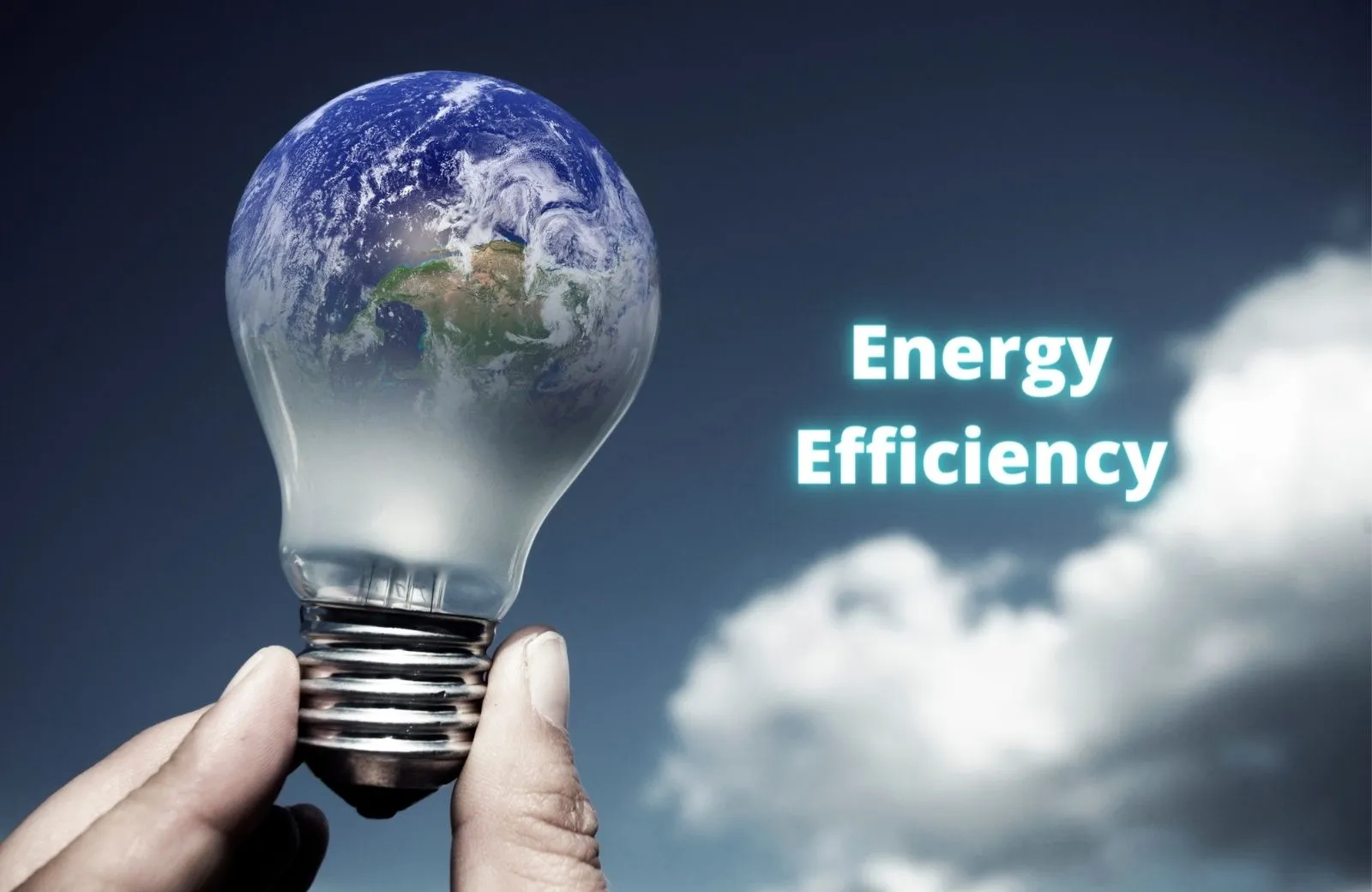Energy efficiency refers to using less energy to perform the same task or produce the same outcome. It plays a crucial role in reducing energy consumption, lowering greenhouse gas emissions, and promoting sustainable living. As the global demand for energy continues to rise, improving energy efficiency has become an essential strategy for addressing environmental challenges, conserving resources, and achieving economic benefits. This article explores the importance of energy efficiency, the benefits it offers, practical ways to improve energy efficiency, and its impact on various sectors.

The Importance of Energy Efficiency
Energy efficiency is vital for several reasons:
- Environmental Protection: Energy production and consumption are major sources of greenhouse gas emissions, contributing to climate change. By improving energy efficien, we can reduce the amount of energy required, thus lowering emissions and mitigating environmental impacts.
- Resource Conservation: Fossil fuels, which are the primary source of energy, are finite resources. Efficient energy use helps conserve these resources, ensuring their availability for future generations.
- Economic Savings: Reducing energy consumption through efficiency measures leads to significant cost savings for households, businesses, and governments. Lower energy bills free up resources that can be used for other purposes.
- Energy Security: Efficient energy use reduces dependence on imported energy, enhancing a country’s energy security. It also helps stabilize energy prices by reducing demand pressures.
- Sustainable Development: Energy efficiency supports sustainable development by promoting cleaner, more efficient energy use. It contributes to the achievement of global sustainability goals, including those related to climate action and economic growth.
Benefits of Energy Efficiency
The benefits of energy efficiency extend across various domains:
- Environmental Benefits: By reducing energy consumption, energy efficiency decreases greenhouse gas emissions, air pollution, and other environmental impacts associated with energy production. This contributes to cleaner air, healthier ecosystems, and a more stable climate.
- Economic Benefits: Energy efficiency measures lead to cost savings on energy bills for consumers and businesses. These savings can be reinvested in other areas, boosting economic activity and creating jobs in sectors such as energy services, manufacturing, and construction.
- Improved Comfort and Health: Energy-efficient buildings provide better indoor air quality, consistent temperatures, and improved comfort for occupants. This enhances overall well-being and reduces health issues related to poor indoor environments.
- Enhanced Competitiveness: Businesses that adopt energy-efficient practices can lower their operational costs, making them more competitive in the market. Energy efficiency can also enhance a company’s reputation and attract environmentally conscious consumers.
- Energy Resilience: Efficient energy use reduces the strain on energy infrastructure, improving its resilience to disruptions such as power outages, natural disasters, and supply shortages.
Practical Ways to Improve Energy Efficiency

There are numerous practical ways to improve energy efficiency across different sectors:
1. Residential Sector
- Insulation and Weatherization: Proper insulation and weatherization of homes reduce the need for heating and cooling, leading to significant energy savings.
- Energy-Efficient Appliances: Using energy-efficient appliances, such as refrigerators, washing machines, and LED lighting, can substantially reduce household energy consumption.
- Smart Thermostats: Smart thermostats optimize heating and cooling systems, adjusting temperatures based on occupancy and preferences, which enhances energy efficiency.
- Renewable Energy: Incorporating renewable energy sources, such as solar panels, can reduce reliance on non-renewable energy and lower energy bills.
2. Commercial Sector
- Building Design: Designing energy-efficient buildings with features such as proper insulation, natural lighting, and energy-efficient HVAC systems can reduce energy consumption.
- Lighting Systems: Implementing energy-efficient lighting solutions, such as LED lighting and automated lighting controls, can significantly lower energy use in commercial buildings.
- Energy Audits: Conducting energy audits helps identify areas where energy efficiency improvements can be made, allowing businesses to implement targeted measures.
- Green Certifications: Pursuing green building certifications, such as LEED or BREEAM, encourages the adoption of energy-efficient practices and technologies.
3. Industrial Sector
- Efficient Equipment: Upgrading to energy-efficient machinery and equipment reduces energy consumption and operational costs in industrial processes.
- Process Optimization: Optimizing industrial wdbos processes through advanced technologies, such as automation and real-time monitoring, enhances energy efficiency.
- Waste Heat Recovery: Implementing waste heat recovery systems captures and reuses excess heat from industrial processes, reducing overall energy demand.
- Energy Management Systems: Adopting energy management systems allows industries to monitor and control energy use, leading to more efficient operations.
4. Transportation Sector
- Fuel-Efficient Vehicles: Using fuel-efficient vehicles and adopting alternative fuels, such as electric or hybrid vehicles, can significantly reduce energy consumption in transportation.
- Public Transit: Promoting public transportation, carpooling, and other shared mobility options decreases individual energy use and reduces traffic congestion.
- Eco-Driving Practices: Encouraging eco-driving practices, such as maintaining steady speeds and avoiding excessive idling, improves fuel efficiency.
- Infrastructure Improvements: Investing in infrastructure improvements, such as dedicated bike lanes and pedestrian pathways, promotes energy-efficient modes of transportation.
Impact on Various Sectors

Energy efficiency has a profound impact on various sectors:
1. Energy Sector
Energy efficiency reduces the demand for energy, which in turn lowers the need for energy production. This decreases the strain on energy infrastructure and reduces the environmental impacts associated with energy generation, such as air pollution and greenhouse gas emissions. Additionally, energy efficiency can delay the need for new power plants and energy infrastructure, leading to cost savings for utilities and governments.
2. Manufacturing Sector
In the manufacturing sector, energy efficiency enhances productivity and competitiveness. Efficient use of energy reduces operational costs, allowing manufacturers to allocate resources to other areas, such as research and development or workforce training. Energy-efficient practices also minimize environmental impacts, helping manufacturers meet regulatory requirements and improve their market reputation.
3. Healthcare Sector
Energy-efficient healthcare facilities provide a healthier environment for patients and staff. Improved indoor air quality, consistent temperatures, and reduced exposure to pollutants enhance patient recovery and staff well-being. Additionally, cost savings from energy efficiency measures can be reinvested in medical equipment, patient care, and facility improvements.
4. Education Sector
Educational institutions benefit from energy efficiency through reduced operational costs and improved learning environments. Energy-efficient schools and universities offer better indoor comfort, lighting, and air quality, creating conducive learning conditions for students. Savings from energy efficiency can be redirected to educational programs, technology upgrades, and facility enhancements.
Conclusion
Energy efficiency is a critical component of sustainable living, offering numerous environmental, economic, and social benefits. By reducing energy consumption, lowering greenhouse gas emissions, and conserving resources, energy efficiency supports the transition to a more sustainable and resilient future. Implementing energy-efficient practices across various sectors can lead to significant cost savings, improved quality of life, and enhanced environmental protection. As the global demand for energy continues to rise, prioritizing energy efficiency will be essential for achieving sustainable development and addressing the challenges of climate change.
Read More Article About “Turkish Ice Cream: A Cultural Phenomenon on a Spoon“




